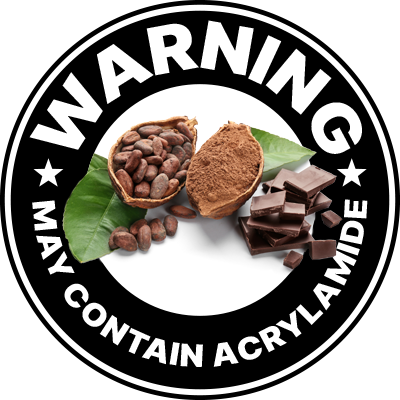
Despite disruptions caused by a global pandemic, the number of 60-day notices filed pursuant to Proposition 65 against food companies alleging exposure to acrylamide continues its exponential growth in 2020.
From only three 60-day notices in 2015 to more than 200 notices in 2019, these lawsuits are costing food companies tens of millions of dollars every year in settlements and attorney fees.
With attention being pulled in a million different directions this year, readers may have missed two positive Prop. 65 developments where the California Chamber of Commerce is taking the lead. Below is a recap.
First Amendment Lawsuit
• October 7, 2019. CalChamber filed its lawsuit last year against the California Attorney General, seeking to stop the Attorney General and private enforcers from requiring businesses selling food products in California from having to provide a Prop. 65 cancer warning because of the presence of acrylamide that is created from cooking or heat processing. The intent of the lawsuit is to protect businesses selling food into California from having to provide false and misleading Prop. 65 cancer warnings to California consumers when the state agency has no credible scientific evidence to support the requirement. Notably, the government bears the burden to show that a compelled disclosure (a Prop. 65 warning for acrylamide in food products) is permissible under the First Amendment.
• March 16, 2020. CalChamber filed its amended complaint to address the court’s procedural and technical concerns with the original complaint.
• August 27, 2020. CalChamber won a major victory in August when Chief District Judge Kimberly J. Mueller denied the Attorney General’s motion to dismiss the case and the motion for attorney fees by intervener Council for Education and Research on Toxics (CERT). Accordingly, the case proceeds.
• October 30, 2020. CalChamber filed its preliminary injunction requesting that the Court prohibit the Attorney General and all private enforcers from filing and prosecuting any new lawsuits to enforce the Prop. 65 warning requirement for cancer as applied to acrylamide in food and beverage products.
OEHHA Rulemaking
• August 4, 2020. The Office of Environmental Health Hazard Assessment (OEHHA) proposed rulemaking to create a new regulatory framework that has the potential to provide meaningful guidance to food companies. Under the proposed framework, Prop. 65-listed chemicals formed by cooking or heat processing foods would not represent an exposure if concentrations are reduced to the lowest level currently feasible. The regulation would also establish maximum concentration levels for acrylamide in certain foods deemed to be the lowest levels currently feasible based on negotiated settlement agreements.
• October 21, 2020. The CalChamber co-led coalition of 35 business organizations submitted a letter supporting the proposed regulatory framework and providing suggested changes to improve it.
How Efforts Help Companies
Both the proposed regulations and the CalChamber lawsuit pertain to acrylamide in food products and are positive developments under Prop. 65 for the business community. Yet, it is important to understand the difference in relief offered and to remind folks that the two pathways are complementary.
Should OEHHA adopt its proposed rulemaking to add Section 25505, it would set up a new regulatory framework providing that Prop. 65-listed chemicals formed by cooking or heat processing foods would not represent an exposure if concentrations are reduced to the lowest level currently feasible.
It would also set up safe harbor levels for acrylamide in a limited enumerated list of food products. The proposed thresholds for certain food groups listed would be based on negotiated settlement agreements.
Accordingly, companies would still be required to comply with Prop. 65 with respect to food and beverage products containing Prop. 65-listed chemicals formed by cooking or heating, but could better defend against bounty hunters if the companies can show concentration levels of these chemicals are reduced to the lowest levels currently feasible for that product.
The CalChamber lawsuit, on the other hand, seeks to stop all future actions by the Attorney General and any private enforcers to enforce Prop. 65 warnings with regard to acrylamide in food and beverage products.
Should CalChamber’s lawsuit succeed, companies selling food or beverage products into California would no longer be required to provide a Prop. 65 warning for the presence of acrylamide, and neither the Attorney General nor private enforcers could sue companies for not warning on this basis.
This article first appeared as a Capitol Insider blog post.

